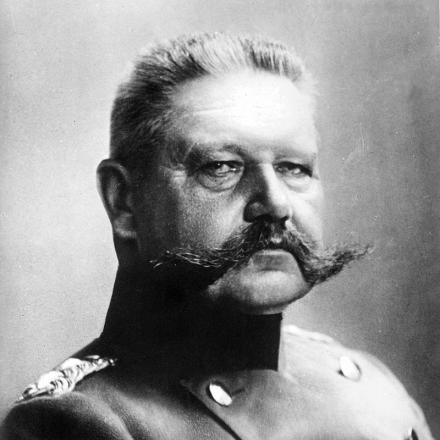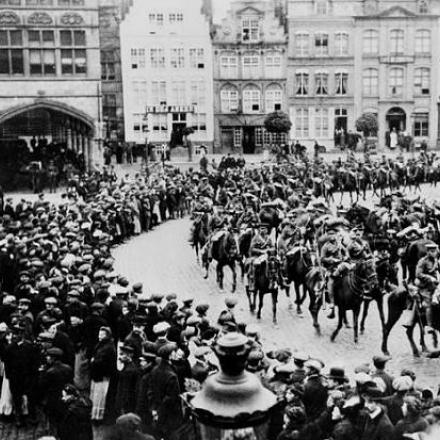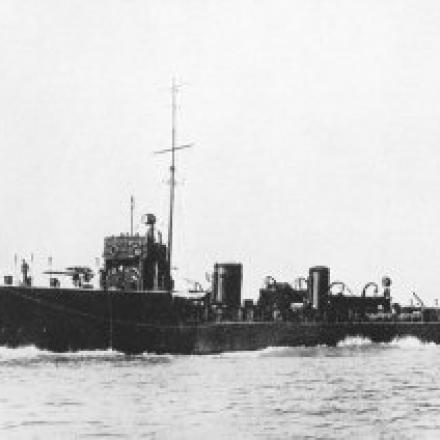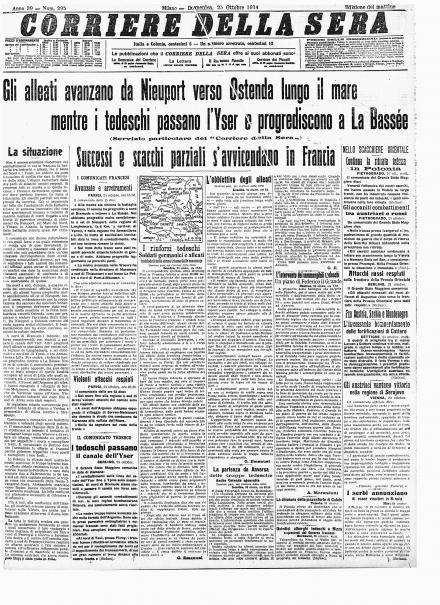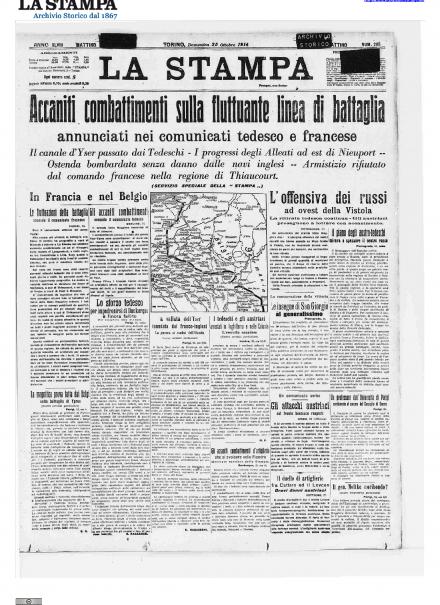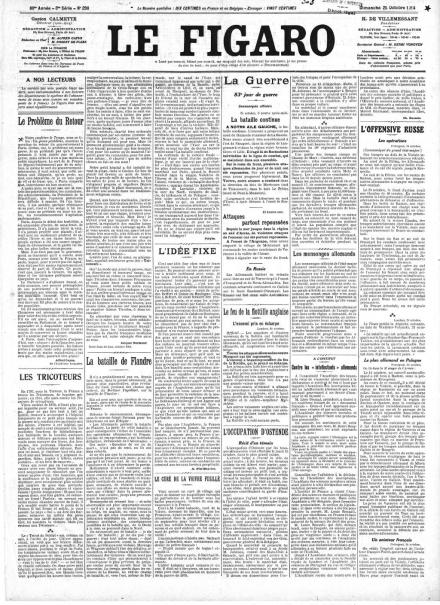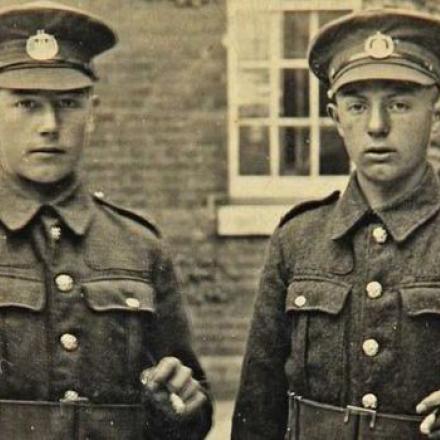Tedeschi indietro tutta in Polonia
La Germania deve premere sull’acceleratore, ha fretta: se le campagne del Belgio settentrionale dovessero allagarsi del tutto sarebbe impossibile uno sfondamento nella regione. Il 25 ottobre i tedeschi si scagliano invano contro Diksmuide, vengono respinti; ci provano anche a Ypres, niente da fare. Gli Alleati resistono e guadagnano altro tempo. Le chiuse dei canali lungo il corso dell’Yser sono aperte già da tre giorni; l’acqua sgorga nelle pianure e ristagna, come le velleità tedesche.
In Francia gli Alleati perdono Vermelles, tra Arras e La Bassée. È una magra consolazione per le armate del Kaiser, costrette a una ritirata totale dalla Polonia. Già, il fronte orientale è di nuovo un grosso problema: tutti i progressi fatti si stanno dissolvendo nel nulla, si può solo arretrare senza voltarsi indietro. Per gli austro-ungarici è grossomodo lo stesso.
A Londra muore Sir Charles Douglas. Il malandato Capo di Stato maggiore britannico non ha retto lo stress e i ritmi frenetici imposti dalla guerra.
Davide Sartori
GLI AVVENIMENTI
Politica e società
- Gran Bretagna: muore Sir Charles Douglas, Capo di Stato maggiore inglese.
Fronte occidentale
- Gli anglo-belga-francesi, dopo accanitissimi combattimenti, si fortificano sulla sponda sinistra dell'Yser.
- I tedeschi continuano l’attacco e tentano invano di irrompere attraverso le linee Alleate a Diksmuide, Ypres, La Bassée e Arras.
- Vermelles viene rioccupata dai tedeschi.
Fronte orientale
- In Polonia i tedeschi si ritirano totalmente.
Fronte d’oltremare
- Sud Africa: i ribelli si dirigono a Calvinia.
Operazioni navali
- L’inglese H.M.S. “Badger” annuncia la distruzione di un sottomarino tedesco.
Parole d'epoca
Soldato Charles Warr, secondo battaglione dello Scots Guards
Lettera al fratello
This last battle, is not war; it is murder. I am pleased to tell you we gave the Germans a terrible sorting on Sunday night, October 25.
At about 9.30 p.m. we heard a lot of shouting, and it seemed to us as if it was some regiment charging, but we were told not to fire, for fear it was our own men.
So we all kept quiet in the trenches, and we let them get right to the trench edge.
Then we saw their helmets, and we poured a volley into them. Each man fired 15 rounds a minute, and you ought to have seen the sights next morning.
The field was covered with them. During the night it poured down with rain, and it was a pitiful sight to see the men who were left wounded crawling up to the trench, saying ‘English comrade.’ You seemed to take a little bit of pity on them in a case like that.
To tell you the truth, I thought we would have all been killed that night because they came up in hundreds shouting like anything.
I believe they tried to frighten us, but they little knew they were running right into a trench.
They got a good reception, I can tell you. They are all afraid to try and do anything after that. In my trench they never hit anybody.
